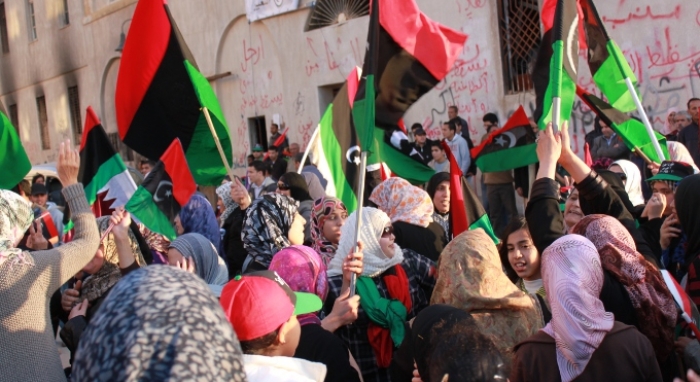The UN Committee on the Elimination of Discrimination Against Women (‘CEDAW’) issued a decision after considering a complaint by Libyan human rights activist Magdulein Abaida, who fled Libya in 2012 after being harassed, tortured and forced to close down her women’s rights organisation, Hakki. Abaida was targeted and threatened because of her work as a woman human rights defender but the Libyan government failed to investigate, prosecute, punish or provide reparations for the torture and harassment inflicted on her. On 16 April 2021, CEDAW found that Libya had violated Abaida’s rights under article 1 of the Convention on the Elimination of Discrimination Against Women (the Convention) by discriminating against her on the basis of her sex and as a woman human rights defender.
CEDAW found that Libya had violated Abaida’s rights as a women human rights defender by failing to investigate and prosecute her unlawful arrest and torture by a militia group affiliated with the government. Libya did not submit observations on the complaint despite four invitations to do so. CEDAW therefore based its decision on substantiated information provided by the author of the complaint.
The case is the first in which CEDAW found a violation by a country from the Middle East and North Africa region and the first case in which CEDAW found a violation of the rights of a human rights defender. CEDAW made several recommendations, including that Libya ‘Recognise publicly the specific place and role of women’s human rights defenders and their legitimacy in the public debate’ and that it take legislative and other measures ‘to ensure a safe and favourable environment to women human rights defenders and female activists and address the current state of impunity, including with respect to non-state actors’.
‘Given the importance of recognition of the work of human rights defenders to an enabling environment for their work, we welcome CEDAW’s directive to recognise the role of women human rights defenders’, said ISHR’s Maithili Pai. ‘We are equally encouraged by the CEDAW’s recognition of the importance of legislative and other measures to enable human rights defenders to carry out their vital and legitimate human rights work’, added Pai. CEDAW also recommended that Libya take concrete, specific and effective legislative and other measures, including the establishment of a national action plan, to ensure a safe and favourable environment to WHRDs and address the current state of impunity, including with respect to non-state actors.
The decision is a welcome jurisprudential addition to previous affirmations by treaty bodies on the rights of human rights defenders under international human rights law. In a groundbreaking statement in 2016, the Committee on Economic, Social and Cultural Rights (‘CESCR’) affirmed that States have a legal obligation under the International Covenant on Economic, Social and Cultural Rights to respect and protect human rights defenders working towards the realisation of rights guaranteed under the Covenant. Furthermore, a 2018 joint statement of several treaty body members and the UN Special Rapporteur on Human Rights Defenders reaffirmed that ‘interference, intimidation, abuse, threat, violence, reprisal or undue restrictions against human rights defenders’ constitute violations of States parties’ treaty obligations.




